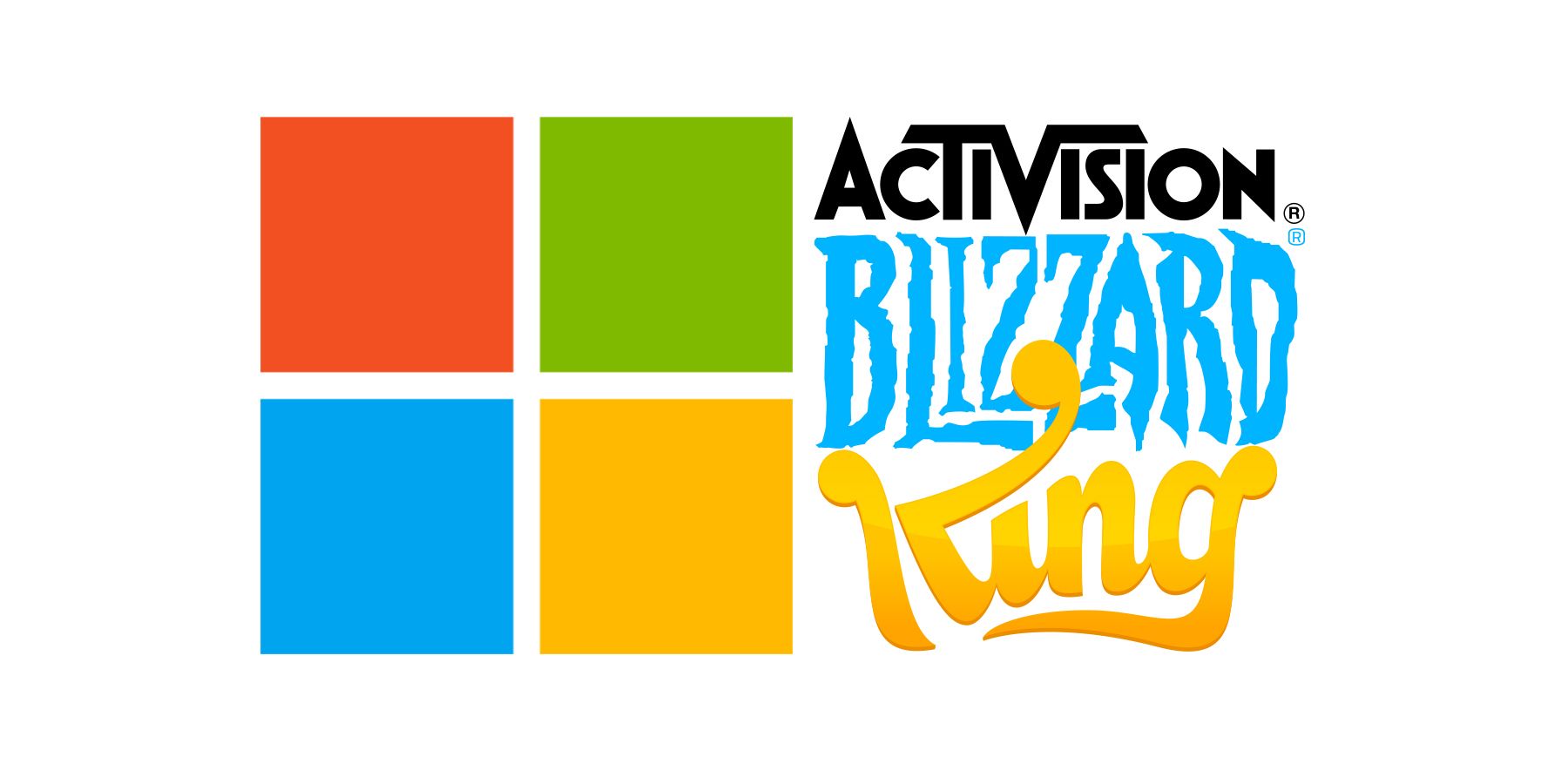Activision Blizzard Acquisition: FTC's Appeal And Future Of The Merger

Table of Contents
The FTC's Case Against the Activision Blizzard Acquisition
The FTC's core argument centers on the assertion that the Microsoft-Activision Blizzard merger would significantly reduce competition in the gaming market, particularly within the rapidly expanding cloud gaming sector. They contend that this mega-merger would grant Microsoft an unfair advantage, harming consumers and hindering innovation.
Specific concerns raised by the FTC include:
- Exclusive Content and Xbox Lock-in: Microsoft could leverage its ownership of Activision Blizzard to make popular franchises like Call of Duty, Candy Crush, and World of Warcraft exclusive or preferential to Xbox consoles and its Game Pass subscription service. This could lock out players using PlayStation, Nintendo Switch, or PC platforms, reducing consumer choice and potentially stifling competition among gaming consoles.
- Domination of Cloud Gaming: The FTC argued that the merger would allow Microsoft to dominate the nascent cloud gaming market, eliminating competition and limiting the options available to consumers. This fear stems from Microsoft's existing strength in cloud computing through Azure and Activision Blizzard's substantial game portfolio.
- Impact on Competitors: The acquisition could harm smaller game developers and publishers competing with Activision Blizzard's vast resources and established franchises. The merged entity would possess an unparalleled level of market power, potentially forcing rivals out of business or limiting their growth potential.
The FTC presented considerable evidence during the initial trial, including internal Microsoft documents and expert testimony, to support these claims. This evidence aimed to demonstrate Microsoft's intentions regarding exclusive content and its potential for anti-competitive behavior.
The Judge's Ruling and the FTC's Appeal
A federal judge dismissed the FTC's lawsuit, concluding that the commission failed to demonstrate that the merger would likely substantially lessen competition. The judge found the FTC's arguments regarding cloud gaming and exclusive titles unconvincing. This decision, however, did not represent the end of the legal battle.
The FTC immediately appealed the judge's ruling, arguing that the court misinterpreted antitrust laws and failed to adequately consider the potential harm to competition. The appeal is based on several key points:
- Misinterpretation of Antitrust Law: The FTC argues the judge incorrectly applied the relevant antitrust standards, failing to account for the unique dynamics of the gaming market and the potential for future anti-competitive behavior.
- New Evidence and Arguments: The appeal may include new evidence or arguments not presented during the initial trial to further strengthen their case against the merger.
- Precedent for Future Cases: The outcome of this appeal will set a significant precedent for future antitrust cases in the tech industry, impacting how regulators evaluate mergers and acquisitions in rapidly evolving markets.
Potential Outcomes and Implications of the Activision Blizzard Acquisition
Several potential outcomes exist following the FTC's appeal:
- FTC Victory: If the FTC wins the appeal, the merger would likely be blocked, representing a significant victory for antitrust enforcement and potentially shaping future regulatory actions.
- Appeal Dismissal: A dismissal of the appeal would allow the merger to proceed, potentially leading to significant changes in the gaming industry's landscape.
- Negotiated Settlement: Microsoft and the FTC could reach a negotiated settlement involving concessions from Microsoft to address the competitive concerns, such as commitments regarding platform exclusivity.
The implications of each outcome are vast:
- Microsoft: A blocked merger would hinder Microsoft's gaming ambitions, while a successful acquisition would bolster its position as a major player in the gaming industry.
- Activision Blizzard: The fate of Activision Blizzard employees and the future of its various game franchises hangs in the balance, dependent on the merger's success or failure.
- Consumers and the Gaming Industry: The outcome will significantly impact consumers through pricing, availability of games, and the overall competitive landscape of the gaming industry.
Furthermore, regulatory actions from other jurisdictions, such as the UK's Competition and Markets Authority (CMA), will also play a role in determining the final outcome.
The Future of Cloud Gaming and the Gaming Industry
The Activision Blizzard acquisition has far-reaching implications for the future of cloud gaming and the broader gaming industry. The merger could reshape the competitive landscape, impacting pricing, subscription services, and exclusive content. This could lead to:
- Shifts in Market Dominance: A successful merger could significantly alter the balance of power within the gaming industry, potentially leading to greater concentration of market share by Microsoft.
- Evolution of Gaming Subscription Models: The integration of Activision Blizzard's games into Game Pass could further drive the adoption of subscription models in the gaming industry.
- Impact on Game Development and Distribution: The merger could influence how games are developed, distributed, and priced, potentially impacting smaller developers and publishers.
Conclusion:
The FTC's appeal against the dismissal of its lawsuit to block the Activision Blizzard acquisition presents a critical juncture for the future of the gaming industry. The FTC's arguments center on the potential for reduced competition, particularly within the cloud gaming sector. The outcome of this appeal will have significant implications for Microsoft, Activision Blizzard, consumers, and the competitive dynamics of the gaming market. The potential outcomes – FTC victory, appeal dismissal, or a negotiated settlement – each carry substantial weight, affecting the future landscape of gaming. Stay informed about the ongoing legal battle surrounding the Activision Blizzard acquisition and its potential impact on the future of gaming. Follow this blog for updates and analysis on this landmark case. Continue to explore the details of the Activision Blizzard merger and its implications for the future of gaming.

Featured Posts
-
 Eminem And Gwen Stefani That Lyric And Its Surprising Story
May 27, 2025
Eminem And Gwen Stefani That Lyric And Its Surprising Story
May 27, 2025 -
 Troops Neutralize 12 Bandits In Katsina State
May 27, 2025
Troops Neutralize 12 Bandits In Katsina State
May 27, 2025 -
 Saint Ouen Fermeture Temporaire De Maternelles A Cause Du Trafic De Drogue
May 27, 2025
Saint Ouen Fermeture Temporaire De Maternelles A Cause Du Trafic De Drogue
May 27, 2025 -
 See Janet Jackson Live Win A Las Vegas Trip From Bushman
May 27, 2025
See Janet Jackson Live Win A Las Vegas Trip From Bushman
May 27, 2025 -
 64m Striker Deal Manchester Uniteds Transfer Pursuit
May 27, 2025
64m Striker Deal Manchester Uniteds Transfer Pursuit
May 27, 2025
